Guest post by Lowell George, National River Cleanup Manager at American Rivers
At the Alice Ferguson Foundation’s 11th Annual Trash Summit more than 200 people – including high school students, nonprofit staff, concerned citizens, business leaders, and elected officials – brought with them their own passion for clean spaces and waterways and ideas for how to solve the persistent pollution problem that affects our nation. While solutions ranged from finding alternatives to balloon releases at weddings to District-wide bag taxes, they were all united by what Maryland Department of the Environment Secretary Benjamin Grumbles called “the power of innovation and triumph of collaboration.”
Power of Innovation
While many would argue that innovations over the past 100 years, especially those related to single-use plastic products, are a large cause of the littler problem we face today, innovation is also one of the most promising solutions moving forward. During the keynote address and a panel discussion at the Trash Summit, speakers from the Rozalia Project, Prince George’s County Department of the Environment, Clean Virginia Waterways, and MGM National Harbor highlighted steps their groups are taking to keep up with pollution prevention and mitigation:
- The Rozalia Project, a nonprofit working to clean and protect our ocean, developed a product individuals can use in their daily lives to stop microfibers from ever getting out of our washing machines and reaching our seas.
- Prince George’s County is setting up wildlife cameras throughout the region to monitor illegal dumping while also tracking litter via the PGCLitterTRAK app to help develop accurate maps of the litter collected.
- Clean Virginia Waterways is helping change behavior at restaurants and weddings by providing paper (instead of plastic) straws to eating establishments and by showing engaged couples alternatives to balloon release send-offs.
- MGM is taking on sustainable initiatives in their operations, including a 700-gallon cistern that stores rain water to be used in back-of-house toilets and an oyster shell recycling program connected to their restaurant.
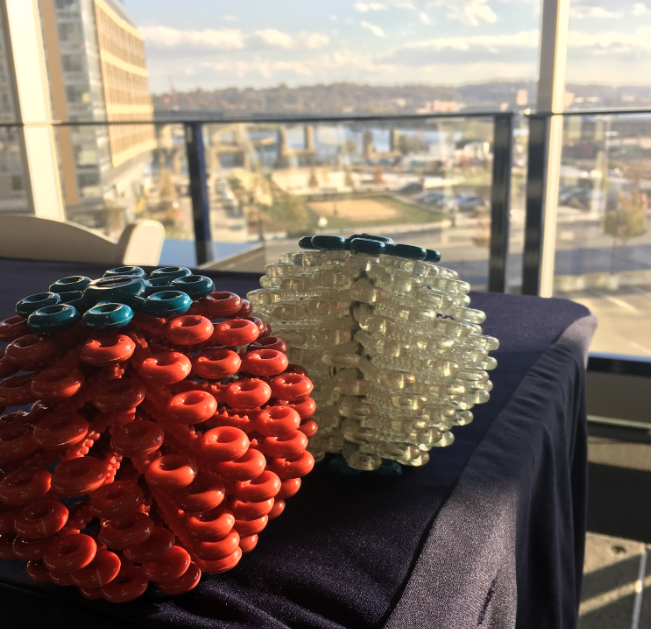
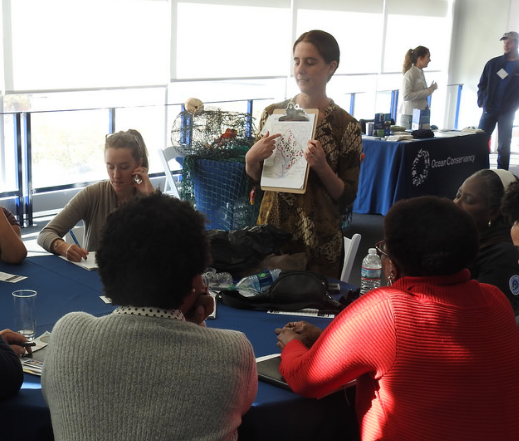
While these products and initiatives vary in size and scope, they all serve as easy alternatives to current norms and educate the public on the dangers of current behaviors. By stopping litter at the source and reacting quickly to new pollution threats, these innovations are efficiently and effectively creating long-term impacts.
Triumph of Collaboration
Innovation does seem like a strong option for overcoming the obstacles posed by litter, but innovating in a silo won’t be nearly as effective, as was demonstrated during the Trash Summit. Throughout the day, discussions came back to the theme of the power of partnerships and the essential role collaboration – between nonprofits, private companies, and government agencies – plays in the problem solving process. While it can be easy to see why working together around a common problem would lead to a stronger cure quicker, it can be more challenging to identify the pivotal role competition plays in this issue.
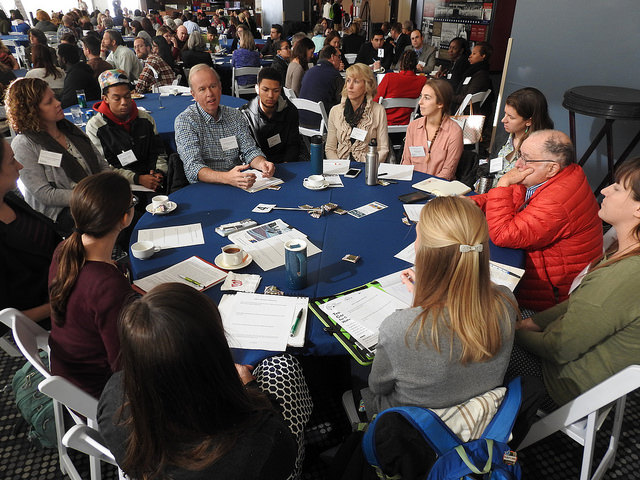
Throughout the Summit, political leaders, including DC Mayor Muriel Bowser, Montgomery County Executive Ike Leggett, and Prince George’s County Executive Rushern L. Baker, III, were talking trash with one another – and not just sharing their ways to solve their respective pollution problems. Each region’s representative touched on the ongoing competition between one another to be the most environmentally friendly and proactive, referencing plastic bag taxes, Styrofoam bans, and fights for bottle return bills in their cases. While competition in other areas of government or between states can lead to inefficiency and the ineffective use of resources, this friendly battle seems to be benefiting all involved. Each governing body is able to see what initiatives or programs the others are launching and replicate or adapt them to fit their jurisdiction’s needs. By having such a concentration of environmentally-focused decision-makers in a relatively small but populous area, the DC metro region is able to compete, collaborate, and evolve together for a greater impact and triumph for all.
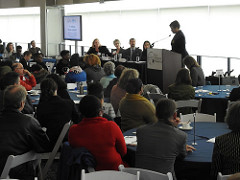
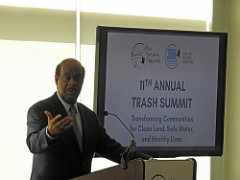
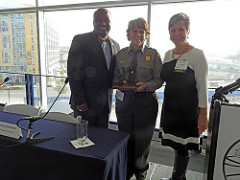
According to Katie Register from Clean Virginia Waterways, “regulation, innovation, and education” are how changes are made in today’s society. The presenters and other panelists at the Trash Summit reinforced this takeaway by demonstrating the top-down and bottom-up forces driving change in their work in the DMV and across the country. While education may be the best long-term solution for preventing litter and pollution, nonprofits, companies, and government agencies are turning to incentives and innovations to solve the problems trash is creating for our communities now. Individuals, companies, and local governments are working together and pushing each other toward a more sustainable future.
While there is still much progress to be made in creating a trash free system of waterways and natural spaces, the Trash Summit made clear that there are already victories to celebrate in the powerful partnerships that have been forged and the innovations developed that will continue to shape our future and push us to a cleaner planet.

